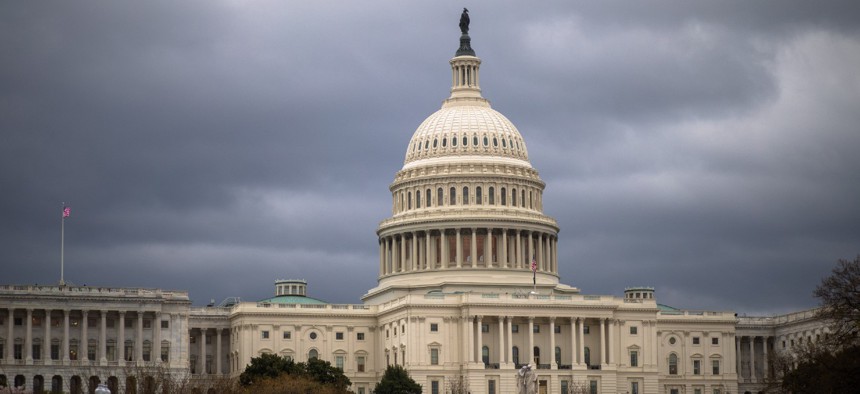
By Nicole Glass Photography / Shutterstock.com
Senate Will Soon Consider Extra Paid Leave and Ethics Crackdown for Feds
Final legislative details affecting feds for two sweeping packages winding their way to the Senate.
House Democrats have moved sweeping pieces of legislation in recent days that will have significant impacts on the federal workforce, including by boosting paid leave and placing tighter restrictions on employees’ pre- and post-government work.
The House early on Saturday morning passed its latest COVID-19 relief bill, The 2021 American Rescue Plan Act (H.R. 1319), which includes $1.9 trillion for direct payments to Americans, aid to state and local governments and funding for schools and vaccine distribution. It would also provide 15 weeks of paid leave for federal employees who are unable to work due to COVID-19 symptoms or self-isolation orders and those who need to care for a child whose school or daycare center is closed or relying on virtual learning. Federal and postal workers caring for someone who contracted the coronavirus or with a family member at least 65 years old who is impacted by the pandemic would also be eligible for the time off.
The measure passed without any Republican support and now heads to the Senate, where Democrats are expected to use a process known as “reconciliation” to overcome Republican objections. The legislative text will require some tweaking, as, for example, Democrats will have to remove or alter a provision raising the federal minimum wage to $15 per hour due to the limits of the parliamentary procedure they are using. The fate of the leave for federal employees—which came with a $570 million price tag in the House bill—could also hang in the balance, though it may not become clear until later this week when Senate leadership is expected to release its version of the relief package. Provisions in a reconciliation bill must have sufficient budgetary impact to be included, as determined by the Senate parliamentarian.
House Democrats also began consideration of their 2021 For the People Act (H.R. 1) on Monday, with final passage of the elections and campaign finance reform legislation expected later this week. The package includes significant changes to ethics restrictions on federal employees, with the aim of cracking down on conflicts of interest and the revolving door in and out of the executive branch.
All federal employees would face a ban on using their official positions to participate in matters related to their former employers. Violators would face fines and one-to-five years in prison. Agency heads, in consultation with the director of the Office of Government Ethics, could issue waivers if it were deemed in the public interest.
Contracting officers at federal agencies would face a two-year ban on receiving any compensation from companies to which they played a role in awarding a federal contract. That would double the current cooling-off period, as well as add any affiliates and subcontractors associated with those companies. Procurement officials would also have to report any job offers their relatives receive from companies to which they have awarded contracts. Employees would face a two-year ban on any involvement with contracts involving former employers.
The bill would also serve as a reauthorization measure for the federal ethics office. It would make it harder for the president to fire the OGE director and give the agency more leeway in launching and conducting investigations and more teeth in enforcement, including through disciplinary action for ethics violators.
The measure is expected to pass the House, where all Democrats have signed on as cosponsors. Republicans have so far balked at the package, making its fate in the Senate uncertain. President Biden on Monday endorsed the legislation.
“These provisions would ensure that government works for the people and guard against corruption across the highest levels of government,” the White House said in a statement.







